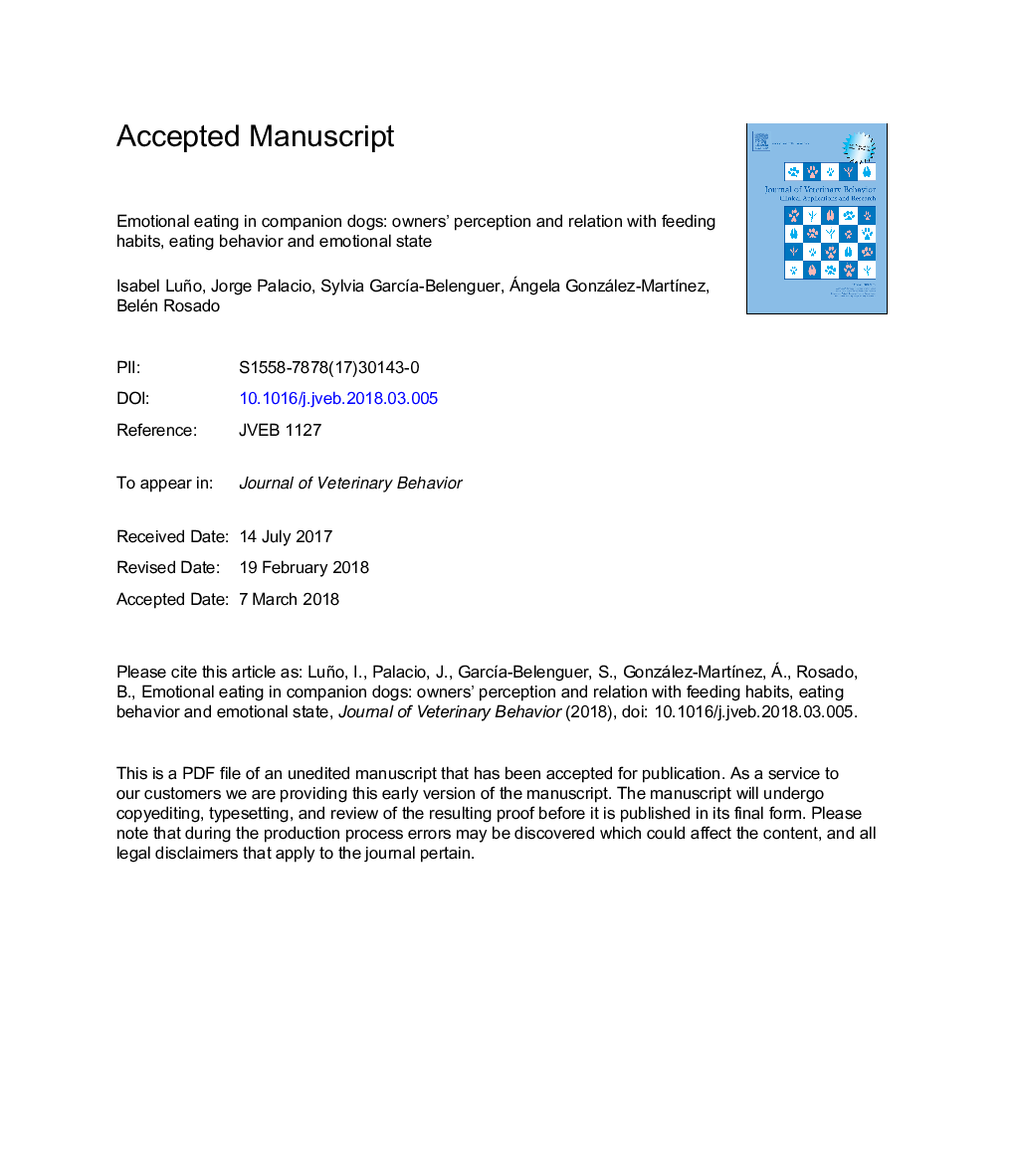| Article ID | Journal | Published Year | Pages | File Type |
|---|---|---|---|---|
| 8484062 | Journal of Veterinary Behavior: Clinical Applications and Research | 2018 | 33 Pages |
Abstract
Emotional eating, or changes in eating behavior due to negative emotions, has been demonstrated in humans and rodents, but not in dogs. The aim of the present study was to survey owners' perceptions of the presence of emotional eating in their dogs, as a first approach to investigate this phenomenon in companion dogs. A questionnaire was administered via social media, including questions about general information, feeding habits, eating behavior and related problems, temperament, and emotional state. A specific question for assessing the perceptions of owners on emotional eating in their dogs (on a 0-4 scale) was included. The vast majority of the 1099 respondents (n = 898, 81.7%) perceived that their dog showed emotional eating at some level of intensity, with more than 40% of the surveyed owners giving a 3 or 4 score. A chi-square test showed significant associations (P < 0.05) between the intensity of emotional eating and several variables. Thus, achieving the maximum score for owner-perceived emotional eating (4/4) was associated with the dog being diagnosed with a medical condition, with the owners' awareness of the ideal weight of his/her dog, and with particular feeding habits, including feeding the dog exclusively with home-made food, once a day, and giving extras as a reward for obedience. Furthermore, high owner-perceived emotional eating was related with being a dependent and unhappy dog, as well as with not eating during the absence of the owner. On the other hand, being a calm dog, both in general as well as specifically during greetings or walk, and not being fearful of other dogs, and not showing any aggression were associated with the absence of owner-perceived emotional eating in the studied dogs (0/4). These results open a new research field on emotional eating in dogs to be further explored in relation to its implication in obesity treatment and behavioral problem management.
Related Topics
Life Sciences
Agricultural and Biological Sciences
Animal Science and Zoology
Authors
Isabel Luño, Jorge Palacio, Sylvia GarcÃa-Belenguer, Ángela González-MartÃnez, Belén Rosado,
